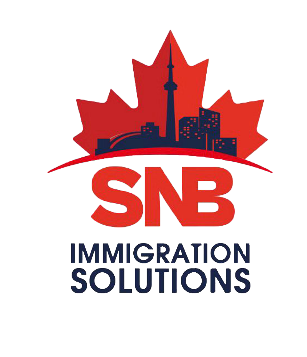
Family Sponsorship
SPOUSAL SPONSORSHIP
Spousal Sponsorship in Canada allows individuals with Permanent Residency (PR) to sponsor their spouse (legally married partner), common-law partner, or conjugal partner.
- Common-law partners can be of any gender
- They are not legally married to you.
- However, they must have been in a genuine relationship with you for the last 12 consecutive months.
- Any periods of time spent away from each other should be short or temporary.
*This program enables Canadian residents to reunite with their loved ones and sponsor them for Permanent Residency in Canada.
CONJUGAL PARTNERS:
Permanent Residents in Canada have the option to sponsor partners who meet specific requirements, which enables them to potentially obtain Permanent Residency in Canada. These requirements include:
- Partners residing outside Canada.
- Partners of any gender.
- Partners not being legally married to the sponsor.
- A genuine relationship with the sponsor for a minimum of 12 consecutive months.
- Any periods of separation being brief and temporary.
- Their current marital status, like being married to another person in a country where divorce is not possible.
- The partner's sexual orientation, such as being in a same-sex relationship in a country where same-sex relationships or marriages are not accepted or are illegal.
- Instances of persecution, where the relationship involves different religious or social groups not accepted in the partner's country, potentially leading to legal or social consequences.
*Moreover, it’s crucial for these sponsorships that partners cannot live with the sponsor in their country of residence or marry the sponsor due to significant legal and immigration factors, such as:
Applicants seeking to sponsor a conjugal partner must provide proof indicating the impossibility of living together or getting married in the partner’s country, which might include evidence of denied long-term stays in each other’s countries.
DEPENDENT CHILD SPONSORSHIP
You have the option to sponsor your dependent children if they meet the following criteria:
However, children who are 22 years old or older may still qualify as dependents if they meet both of these conditions:
- They are under 22 years old.
- They do not have a spouse or common-law partner.
- They are unable to financially support themselves due to a mental or physical condition.
- They have been financially dependent on their parents since before the age of 22.
- They have been financially dependent on their parents since before the age of 22.
*It’s important to note that apart from age, your dependent child must continue to meet these requirements until the processing of your application is complete.
PARENT AND GRANDPARENT SPONSORSHIPS
You can sponsor your own parents and grandparents, whether they are related by blood or through adoption. In situations of divorce, you have the option to submit separate sponsorship applications if you plan to sponsor separated parents or grandparents.
You can sponsor your own parents and grandparents, whether they are related by blood or through adoption. In situations of divorce, you have the option to submit separate sponsorship applications if you plan to sponsor separated parents or grandparents.

OTHER FAMILY SPONSORSHIPS
If you are 18 years of age or older and meet any of the following criteria, you are eligible to sponsor certain relatives:
- Canadian citizen
- Person registered in Canada as an Indian under the Canadian Indian Act
- Permanent resident of Canada
However, to sponsor eligible relatives, you must be residing in Canada unless you fall under specific exceptions. These exceptions include situations where you:
- Are a Canadian citizen living abroad but plan to return to Canada when your relatives immigrate.
- Are sponsoring your spouse, common-law partner, or conjugal partner.
- Are sponsoring dependent children who have no dependent children of their own.
These criteria are essential to qualify as a sponsor for eligible relatives, but it’s crucial to refer to official Canadian immigration authorities for the most up-to-date and detailed information regarding family sponsorships.
WHO CANNOT SPONSOR THEIR RELATIVES
While individuals above the age of 18 with permanent resident status in Canada can sponsor their families, there are certain restrictions to be aware of. You may not be eligible to sponsor your spouse, partner, or child if:
- You cannot financially support them.
- You will not be residing in Canada while seeking to sponsor their visa.
- You have already applied to sponsor the same individual, and a decision on that application is pending.
- You are incarcerated in jail, prison, or a penitentiary.
- You have outstanding obligations such as an immigration loan, a performance bond, or court-ordered family support payments, excluding Quebec residents.
- You failed to provide the financial support you agreed to when signing a sponsorship agreement for someone else in the past, excluding Quebec residents.
- You have declared bankruptcy and have not been discharged, excluding Quebec residents.
- You are receiving social assistance for reasons other than a disability.
- You have been convicted of attempting, threatening, or committing a violent criminal offense, an offense against a relative, or any sexual offense, whether inside or outside Canada.
- You are not legally allowed to stay in Canada and must leave the country because you have received a Removal Order.
These restrictions are important to consider when seeking to sponsor family members, and it’s essential to consult official Canadian immigration authorities for the most current and detailed information regarding sponsorship eligibility.


